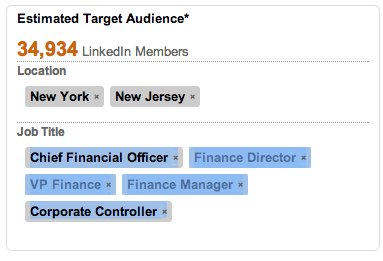Skift Take
"our attendees are not on social media"
Sometimes the only obstacle between us and a social media friendly event is our boss. This post gives you some arguments and tactics that will leave in doubt the most skeptic boss, so you can enjoy your fair share of social goodness.

Here is a typical scenario. You’re an event professional who has been enjoying social media for a while. You see the value of using Twitter, Facebook, LinkedIn, YouTube etc to offer a better event experience.
You completely believe in the power of serendipity. You may have experienced the viral nature of the tool and praise those brands who took the challenge a while ago.
You go to work and your thought number one is: I know social can bring value to my event, we have to do it.
The only obstacle is your stubborn boss.
Social Media and Skepticism
The most successful social media practitioners are those who are able to persuade skeptic minds.
The first time I had to sell the power of social media as a marketing tool was back in 2007. Back then I did not have bulletproof arguments. It was more gut feeling.
Today, after convincing hundreds of thousands of readers and few dozen C-level executives, I am happy to share the most effective arguments to sell social media to your boss.
A Note on Methodology
What you will discover in this post is that the beast to beat is not the skepticism of your boss, but rather to give some substance to your gut feeling.
In fact, saying that social media is amazing, although great to hear, is often not enough. In order to make social a priority for your business, allow me to invite you to consider:
– the wider business case for social media (do you know what the most successful applications of social media are?)
– the tech friendliness of your audience
– the case for social media in your business
If you are not 100% sure of all the above, it will be tough for others to follow your suggestions. In fact you will just look like a hippie alien ranting about philosophical concepts.
A further consideration is about your role. If your role has nothing to do with social media, do not get involved with it. Otherwise you will end up doing two full time jobs while still paid just for one. Make a case for social media only if it impacts on your current activities or if you want to get in another role.
Now that I’ve shared my warnings it’s time to delve into some sound, research backed arguments that you can give to that stubborn boss of yours!
Show Them Reach
Sometimes the strongest argument is very simple and it is a direct result of listening. Listening is the first activity in a social media program.
Start with some listening or social media monitoring, possibly with free tools such as Socialmention. If you discover that a significant number of people is talking about your event on social media – you gave yourself a solid piece of evidence.
If you are able to prove that the reach of those talking about your event online is similar to what you achieve on other media such as email or display advertising, you can count on the attention of the most skeptic party.
On the other hand, if nobody is talking about your event online, you should question if your desire to jump on social is more a personal rather than a business need.
Give Them Some Stats
Sometimes even if an audience is not talking about an event on social media there can still be an opportunity to be the first to innovate.
If you know what your audience looks like as well as their geographical location you can surely use tools such as social advertising for proof of concept.
All major social platforms offer advanced targeting options. This means you are able to enter exactly the target profile of your audience and estimate the reach on a specific social network.
Therefore if you are confronted with the argument that you can show them what these advertising dashboards forecast in terms of reach.
Let’s look at a practical example, say I want to promote a conference in New York aimed at Chief Financial Officers, Finance Directors, VP Finance, Finance Managers and Corporate Controllers I know that on LinkedIn I can reach around 35,000 people within the states of New Jersey and New York.

This in itself could be a fantastic starting point for a whole social media program, not just for a promotional exercise.
Like the trick?
Give Them Some Peer Pressure
Nothing beats peer pressure. I remember having to deal with a particularly difficult client and my arguments were not making any impact.
I decided to make a bit of research and discovered that their competitors were carrying an impressive social initiative with some above the average results.
Showing the competition’s effort worked like a million arguments. It was a practical example of someone my client could relate to, who was getting objective results.
The important bit of the statement above is the objectivity of results. I am not in fact suggesting that we should be on social media because someone else is. Alas if we notice that a close competitor is engaging, growing its reach and achieving a more complete value proposition – this is a terrific evidence that investing in social could be a good idea.
Often enough this is the only reason why the ‘chiefs’ act. All the parents with a kid nagging for a Nintendo DS completely understand where I am coming from.
DIY
You know the drill, it’s better to beg for forgiveness than to ask for permission. If you are bold enough, you can take the risky route of trying something yourself and show the positive results.
I maintain that social media programs should start small and grow organically. I’ve done it successfully for programs that now count on 6 figure budgets.
This approach can pay off if you have access to a small budget or have some time to spare. If you just can’t shut that insisting voice within yourself, just do it.
The starting point is this post.
If you obtain something objectively significant you’ll then have a lethal weapon at the next executive meeting.
Educate Them
In few instances I made my counterpart believe that social media was actually their idea. This is potentially more effective than peer pressure. Specially if your boss is a he, I can ensure you we like to think that ‘it was our idea‘.
You get there by starting an undercover education program about social media. Whenever you spot something vaguely inspiring that can have an impact on your boss, send it along, with no comment.
For example, if your boss obsession is to rank high on Google, send them an article on the impact of social media on SEO.
If you are consistent over time, at the next meeting they will be the one suggesting, say, starting a blog. But guess who they’ll ask to implement it!?
Infect Them
Social media friendliness is like a bug. Sometimes you don’t realize the impact of social if you don’t try it yourself.
We all thought at one stage that Twitter was a waste of time. This is before we actually tried it ourselves.
Therefore my next suggestion is to trick your boss into trying it. Maybe by attending a social media driven event or by opening them up a Twitter account.
If they are passionate about food, show them Instagram. If they talk about insurance all the time, show them a discussion in a LinkedIn Group.
Get us, the social media community, to convince them, we do that on a daily basis.
If Everything Fails
You’ll have to realize that it takes time. None of the above will work overnight, but they will eventually and with some consistency.
If, over a long period of time, you still encounter resistance, ask yourself if this is the right thing for your event.
In the meanwhile, here is a video I suggest to watch in full (50+ minutes) to understand how persuading top executives works. Gary Vaynerchuck speaking at INC 500 – a masterclass in selling social media.





